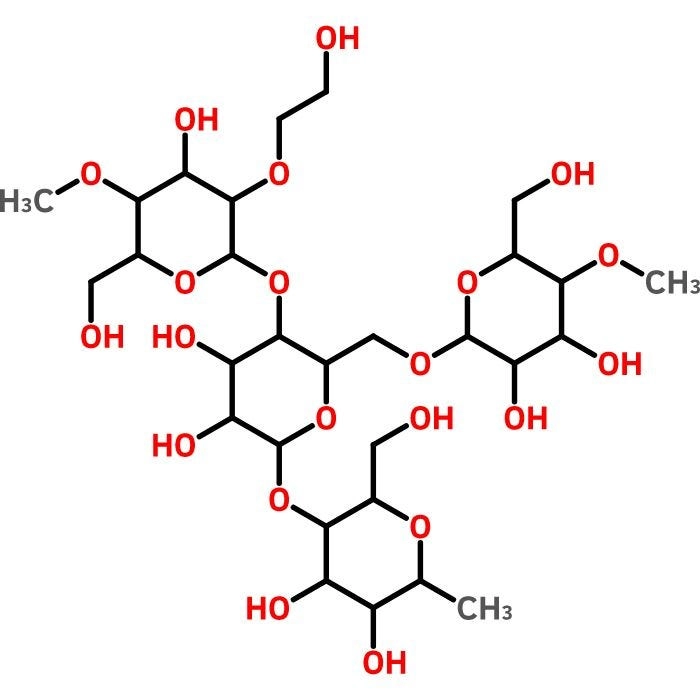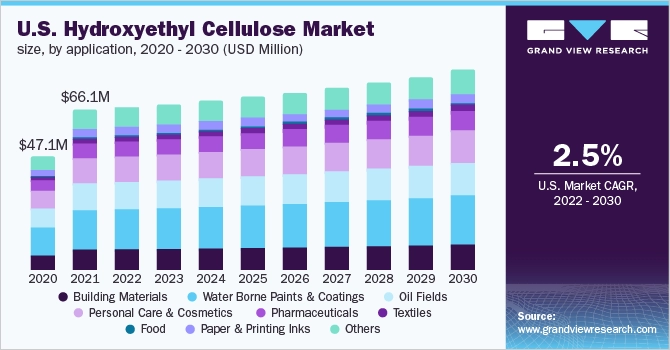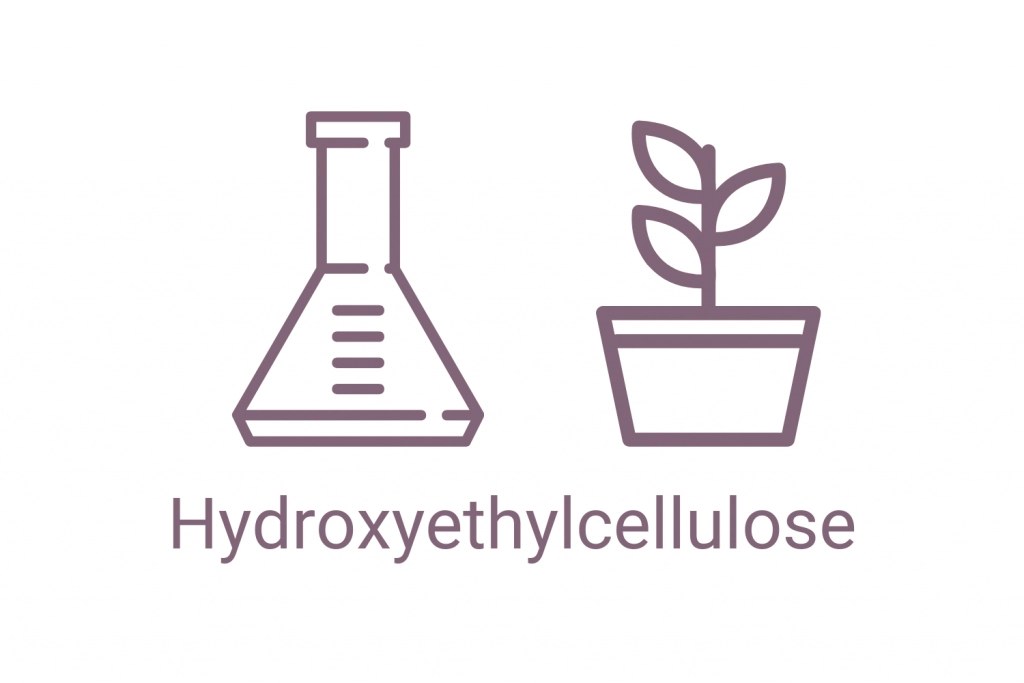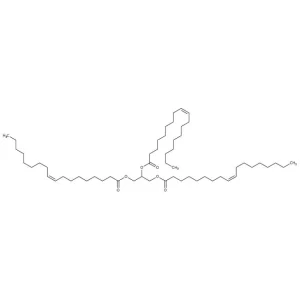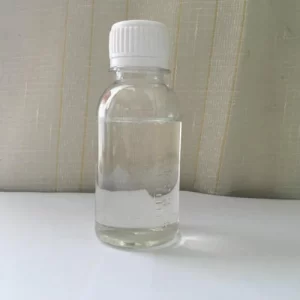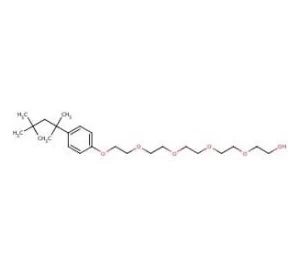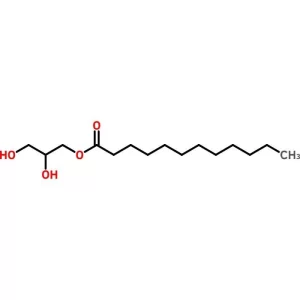What is Hydroxyethyl Cellulose Chemical Composition and Properties
Hydroxyethyl Cellulose (HEC), also known as Cellulose 2-Hydroxyethyl Ether, is a water-soluble polymer derived from natural cellulose. Its CAS number is 9004-62-0, making it a widely recognized thickener and binder in many industries. Chemically, it’s cellulose modified by the addition of hydroxyethyl groups, which gives it unique solubility and viscosity properties.
Synonyms
- Hydroxyethylcellulose
- HEC CAS 9004-62-0
- Cellulose hydroxyethyl ether
- Natrosol 250 (trade name)
- Hyetellose
Chemical Composition and Molecular Formula
- Molecular Formula: C29H52O21 (varies slightly depending on substitution degree)
- Composed of long chains of glucose units linked by β-1,4-glycosidic bonds
- Hydroxyethyl groups replace some of the hydroxyl groups on the cellulose backbone
- Degree of substitution (DS) typically ranges from 1.3 to 2.5, impacting solubility and thickening power
Physical Properties
- Appearance: Fine, white to off-white powder
- Solubility: Easily soluble in cold water, forming clear, viscous solutions
- Viscosity: Adjustable by concentration; widely used as a thickener
- pH Range: Stable between 2 and 12 in aqueous solutions
- Thermal Stability: Stable up to about 230°C
- Non-ionic nature: Makes it compatible with a range of other chemicals without charge interaction issues
Key Characteristics
- Excellent thickening agent for water-based systems
- Improves suspension and binding properties
- Non-ionic and biodegradable
- Provides film forming and water retention capabilities
- Compatible with various pH levels, salts, and surfactants
- Easily tailored viscosity grades available based on application needs
Hydroxyethyl Cellulose’s combination of chemical structure and physical traits makes it a versatile ingredient. Whether you’re working with cosmetics, pharmaceuticals, construction materials, or industrial formulations, this polymer delivers consistent performance as an effective thickener and stabilizer.
Technical Specifications of Hydroxyethyl Cellulose
When selecting Hydroxyethyl Cellulose (HEC CAS 9004-62-0) for your projects, understanding its technical specifications is crucial. This water-soluble polymer is known for its reliable performance as a thickener and stabilizer across various industries. Below you’ll find the key product parameters that define the quality and functionality of HEC.
Physical and Chemical Properties
- Appearance: Off-white to beige powder
- Molecular Formula: Approximately C29H52O21 (varies with substitution degree)
- CAS Number: 9004-62-0
- Solubility: Soluble in cold water, forming clear solutions
- pH (1% solution): 6.5 – 8.5
- Bulk Density: Typically 0.3 – 0.5 g/cm³
- Moisture Content: ≤ 5% (ensures product stability and proper handling)
Viscosity and Degree of Substitution
- Viscosity Range: 50 – 2,000 mPa·s (1% aqueous solution at 20°C)
- This range supports tailored thickening needs in cosmetics, pharmaceuticals, or construction mixes.
- Degree of Substitution (DS): 1.3 – 1.8
- Reflects the average number of hydroxyethyl groups attached per anhydroglucose unit, affecting water retention and thickening efficiency.
Purity and Safety Standards
- Purity Level: Over 99% cellulose ether content
- Heavy Metals: Meet USP and EP limits, usually < 10 ppm
- Microbial Limits: Complies with hygiene standards suitable for personal care and pharmaceutical uses
- Non-toxic and Non-irritating: Safe for skin-contact applications
Packaging and Storage
- Packaging Options: 25 kg fiber drums or customized packing suitable for industrial and commercial clients
- Storage Conditions: Store in a dry, cool environment away from direct sunlight to preserve product quality and shelf life.
By focusing on these technical specifications, you ensure that the HEC supplied by Blissam meets the stringent demands of U.S. manufacturers and formulators. Whether you’re working on thickening cosmetics, stabilizing pharmaceuticals, or enhancing construction materials, our Hydroxyethyl Cellulose delivers consistent, high-performance results.
Key Applications of Hydroxyethyl Cellulose in Various Industries
Hydroxyethyl Cellulose (HEC CAS 9004-62-0) is a versatile water-soluble polymer widely used across multiple industries due to its excellent thickening, binding, and film-forming properties. Here’s a detailed look at the key applications of HEC, also known as Cellulose 2-Hydroxyethyl Ether, including its role as a popular HEC thickener.
Cosmetics and Personal Care
In cosmetics, HEC acts primarily as a thickener, stabilizer, and film former. It helps improve the texture and consistency of:
- Creams and lotions, offering a smooth, non-greasy feel
- Shampoos and conditioners, enhancing viscosity without weighing hair down
- Facial cleansers and moisturizers, ensuring even application and stability
- Toothpaste formulations as a binder and stabilizer
HEC for cosmetics is favored because it is non-irritating, biodegradable, and compatible with a wide range of ingredients, making it ideal for natural and synthetic formulations. Products like Natrosol 250 highlight the quality and reliability sought in cosmetic-grade HEC.
Pharmaceuticals
Hydroxyethyl Cellulose is widely used in pharmaceutical applications as a controlled-release agent, binder, and thickener in topical gels, ointments, and suspensions. Its properties help:
- Stabilize emulsions and suspensions
- Improve texture and spreadability of creams and gels
- Provide sustained drug release in oral formulations
Pharmaceuticals benefit from HEC’s biocompatibility and water solubility, making it a go-to material in both human and veterinary medicine.
Construction
In the construction sector, HEC supports mortar, plaster, and tile adhesives as a water retention and thickening agent. It enhances:
- Workability and open time of cement-based products
- Adhesion and flexibility in tile adhesives
- Water retention to prevent cracking and ensure proper curing
This makes hydroxyethyl cellulose crucial for quality and durability in building materials.
Oil and Gas
HEC also finds use in the oil and gas industry, especially in drilling fluids and fracking additives. Its thickening and viscosity control properties aid in:
- Suspension of drill cuttings
- Reducing fluid loss and improving wellbore stability
- Enhancing the efficiency of hydraulic fracturing fluids
The chemical stability of HEC under various temperature and pressure conditions is vital for these demanding applications.
Other Uses
Beyond these primary sectors, Hydroxyethyl Cellulose is used in:
- Paints and coatings as a thickener and stabilizer
- Detergents and cleaning products to improve texture and performance
- Food industry as a stabilizer and thickener in specific formulations
HEC manufacturers ensure the product meets strict quality parameters for each specific use, making it a reliable choice across these varied fields.
the broad applicability of Hydroxyethyl Cellulose makes it essential for manufacturers and formulators in the U.S. seeking a consistent, efficient, and cost-effective hydroxyethyl cellulose thickener tailored for their industry needs.
Benefits of Using Hydroxyethyl Cellulose from Blissam
When you choose Hydroxyethyl Cellulose (HEC) from Blissam, you’re opting for a product that combines quality, consistency, and tailored performance—key for industries like cosmetics, pharmaceuticals, construction, and oil and gas.
High Purity and Consistent Quality
Blissam’s HEC, also known as Cellulose 2-Hydroxyethyl Ether, undergoes strict quality control to ensure high purity and uniform molecular weight. This consistency means you get reliable thickening, gelling, and stabilizing effects every single time you use it. This is critical for maintaining product performance, especially in sensitive applications like skincare formulations or pharmaceutical applications.
Superior Thickening and Water Solubility
Our Hydroxyethyl Cellulose is a water-soluble polymer known for excellent thickening ability without altering other product properties. Whether you need it as a thickener for cosmetics or as a rheology modifier in construction materials, Blissam’s HEC delivers smooth texture and stable viscosity. This makes it easier for formulators and manufacturers across various sectors.
Versatile and Easy to Work With
Blissam’s HEC dissolves quickly and evenly in water, reducing processing time and improving manufacturing efficiency. It blends well with other raw materials, whether you’re producing personal care items or concrete admixtures. This ease of use translates into cost savings during production.
Competitive Hydroxyethyl Cellulose Price
We offer Hydroxyethyl Cellulose CAS 9004-62-0 at a competitive price point without compromising quality. Thanks to our efficient manufacturing and supply chain, Blissam provides local customers in the U.S. with affordable access to a premium product, helping your business stay cost-effective in a competitive market.
Technical Support and Reliable Supply
Blissam isn’t just a HEC manufacturer — we partner with you. Our team provides technical support to help you optimize formulations and application efficiency. Plus, we ensure timely and consistent delivery, reducing downtime and keeping your production smooth.
By selecting Blissam as your Hydroxyethyl Cellulose supplier, you benefit from:
- High purity and consistent product quality
- Excellent water solubility and thickening power
- Cost-effective pricing for the U.S. market
- Easy integration into various industrial processes
- Dependable supply and dedicated technical support
These advantages make Blissam’s Hydroxyethyl Cellulose a smart choice for businesses seeking reliable, high-performing cellulose ethers.
Why Choose Blissam as Your Hydroxyethyl Cellulose Supplier
When it comes to sourcing Hydroxyethyl Cellulose (HEC CAS 9004-62-0), selecting the right supplier matters. At Blissam, we understand the unique demands of the U.S. market and offer a product that meets both quality and consistency expectations.
Trusted Manufacturer with Strict Quality Control
Blissam is a reputable HEC manufacturer specializing in water-soluble polymers like Cellulose 2-Hydroxyethyl Ether. Our production facilities follow rigorous standards to ensure each batch of Hydroxyethyl Cellulose is:
- Pure and consistent with guaranteed viscosity and particle size
- Free from contaminants and impurities
- Tailored to meet application-specific requirements such as cosmetics, pharmaceuticals, and oilfield uses
Comprehensive Product Range and Custom Solutions
We provide a variety of Hydroxyethyl Cellulose grades, including equivalents like Natrosol 250 and Hyetellose, ensuring you get exactly what your formula needs. Whether you’re looking for a versatile HEC thickener or a specialty grade, Blissam has you covered.
Competitive Hydroxyethyl Cellulose Price with Reliable Supply
Our pricing is transparent and competitive, designed to fit the budgets of small to large enterprises without compromising on quality. Plus, with our efficient logistics network across the United States, you get timely deliveries—reducing downtime in your production.
Expert Support and Technical Assistance
Choosing Blissam means partnering with more than just a supplier. Our technical team is ready to assist you with:
- Product selection advice to optimize performance
- Guidance on HEC for cosmetics, pharmaceuticals, and construction
- Troubleshooting and formulation support
Commitment to Sustainability and Compliance
Blissam is committed to responsible manufacturing practices. You can trust our Hydroxyethyl Cellulose products to comply with local safety and environmental regulations, making your sourcing both safe and sustainable.
In a nutshell, Blissam is your go-to source for reliable, high-quality Hydroxyethyl Cellulose tailored to the needs of the U.S. market—backed by expertise, consistency, and service you can count on.
How to Source Hydroxyethyl Cellulose Locally
Sourcing Hydroxyethyl Cellulose (HEC CAS 9004-62-0) locally in the United States involves understanding product specifications, reliable supplier networks, and compliance with industry standards. Here’s a practical guide to help you find the right Hydroxyethyl Cellulose supplier and ensure you get a high-quality, cost-effective solution.
Identify Your Specific Requirements
Before searching, clearly define your needs:
- Product Grade: Cosmetic, pharmaceutical, construction, or industrial-grade Hydroxyethyl Cellulose
- Viscosity and Molecular Weight: Different applications require varying thickening power and solubility
- Quantity Needed: Bulk orders for manufacturing or smaller lots for labs and R&D
- Purity Standards: Confirm compliance with U.S. FDA or other relevant certifications if needed
Find Local Hydroxyethyl Cellulose Suppliers and Manufacturers
Look for suppliers and manufacturers specializing in water-soluble polymers like Hydroxyethyl Cellulose in your region. Benefits of sourcing locally include faster delivery, easier quality control, and reduced shipping costs. Consider the following sources:
- Chemical Manufacturers: Companies producing or distributing cellulose ethers, including Cellulose 2-Hydroxyethyl Ether (HEC)
- Wholesale Distributors: They often stock bulk quantities and offer technical support for products like Natrosol 250 or Hyetellose
- Industrial Raw Material Suppliers: Especially those serving U.S. personal care, pharmaceutical, or construction sectors
Verify Supplier Credentials and Product Quality
Check for:
- Certificates of Analysis (COA): Ensures product matches chemical composition and physical properties
- Safety Data Sheets (SDS): Understand handling and storage for Hydroxyethyl Cellulose CAS 9004-62-0
- Customer Reviews and References: Reliable suppliers often provide case studies or testimonials from U.S.-based clients
Request Samples and Technical Support
- Obtain product samples to test compatibility with your formulations.
- Engage the supplier’s technical team for guidance on proper use and optimization.
- Confirm price points comparing multiple local suppliers to get the best Hydroxyethyl Cellulose price without compromising quality.
Explore Regional Trade Shows and Industry Platforms
- Attend U.S.-based trade shows related to chemicals, cosmetics, or pharmaceuticals.
- Join local industry forums and sourcing platforms where manufacturers and distributors list HEC for cosmetics or other applications.
- This direct engagement can expedite sourcing and build long-term supplier relationships.
of Key Steps
- Define exact grade and specifications needed
- Identify reliable local suppliers and manufacturers
- Verify product quality and certifications
- Request samples for product evaluation
- Compare prices and negotiate terms
- Utilize trade shows and industrial networks for sourcing
By focusing on these points, you can confidently source Hydroxyethyl Cellulose tailored to your U.S.-based business needs, ensuring timely supply and competitive pricing.
Frequently Asked Questions About Hydroxyethyl Cellulose
What is Hydroxyethyl Cellulose CAS 9004-62-0
Hydroxyethyl Cellulose (HEC) is a water-soluble polymer derived from cellulose. It acts as a thickener, binder, and film former in various industries. Known as Cellulose 2-Hydroxyethyl Ether, it’s widely used for its versatility and safety in products ranging from cosmetics to construction materials.
What are the main uses of Hydroxyethyl Cellulose
HEC serves as a thickener, stabilizer, and rheology modifier in many sectors including:
- Cosmetics and personal care: creams, lotions, shampoos
- Pharmaceuticals: tablet coatings, suspensions
- Construction: cement and plaster additives
- Oil and gas: drilling fluids
- Other applications like adhesives and paints
Is Hydroxyethyl Cellulose safe for personal care products
Yes. Hydroxyethyl Cellulose is non-toxic, non-irritating, and biodegradable. It complies with regulations for cosmetic ingredients and is widely trusted by formulators for skin and hair products in the US market.
How do I choose the right grade of Hydroxyethyl Cellulose
Different grades of Hydroxyethyl Cellulose, such as Natrosol 250 and Hyetellose, offer varying viscosity and performance characteristics. Your choice depends on:
- Desired thickness or flow behavior
- Compatibility with other ingredients
- Application-specific requirements
Our technical team can help you find the best HEC grade for your formulation.
What is the typical concentration range for Hydroxyethyl Cellulose in formulations
- For cosmetics and personal care, concentrations usually range between 0.1% to 2%.
- In construction products, it may be higher, depending on the required consistency.
- In oil and gas applications, concentration depends on fluid properties and environment.
How should Hydroxyethyl Cellulose be stored
Store Hydroxyethyl Cellulose in a cool, dry place away from moisture and direct sunlight. Ensure packaging is tightly sealed to protect the free-flowing powder from clumping or degradation.
Can Hydroxyethyl Cellulose be used in cold water
Yes. One of the benefits of HEC is its easy solubility in cold or warm water, which makes it convenient for use in various processes without heating.
What affects the price of Hydroxyethyl Cellulose in the US market
Factors influencing Hydroxyethyl Cellulose price include:
- Grade and viscosity requirement
- Bulk order size
- Quality certifications and manufacturing standards
- Supplier reliability and local availability
Blissam offers competitive pricing with consistent quality for US customers.
How do I ensure I am buying Hydroxyethyl Cellulose from a reliable supplier
Look for a supplier who offers:
- Clear technical specifications and product certifications
- Good customer support and technical guidance
- Local stock and fast shipping within the US
- Transparent pricing and product traceability
Blissam meets all these criteria as an experienced HEC manufacturer and supplier.
If you have more questions or need specific product advice, feel free to contact us. We’re here to help you source the right Hydroxyethyl Cellulose for your application.
